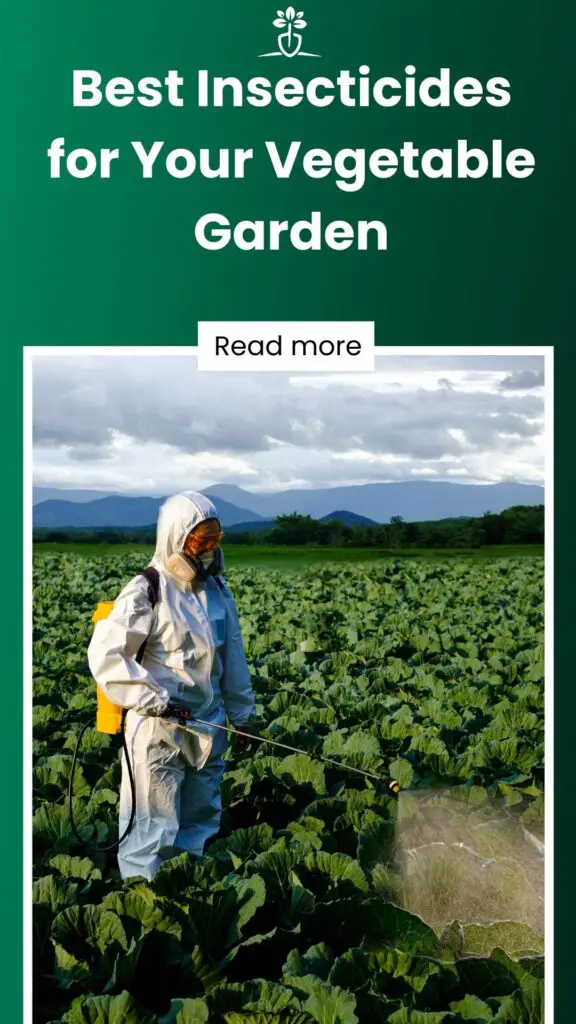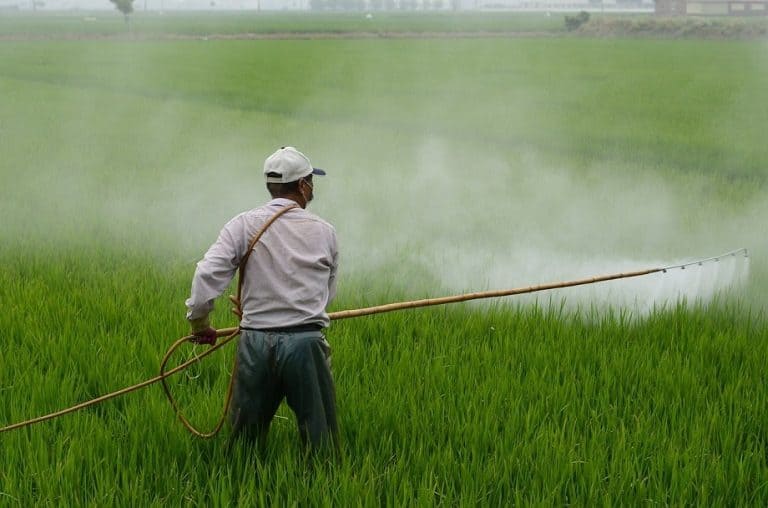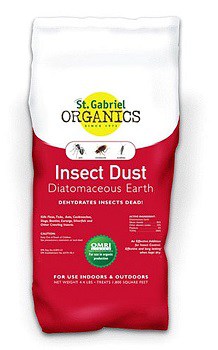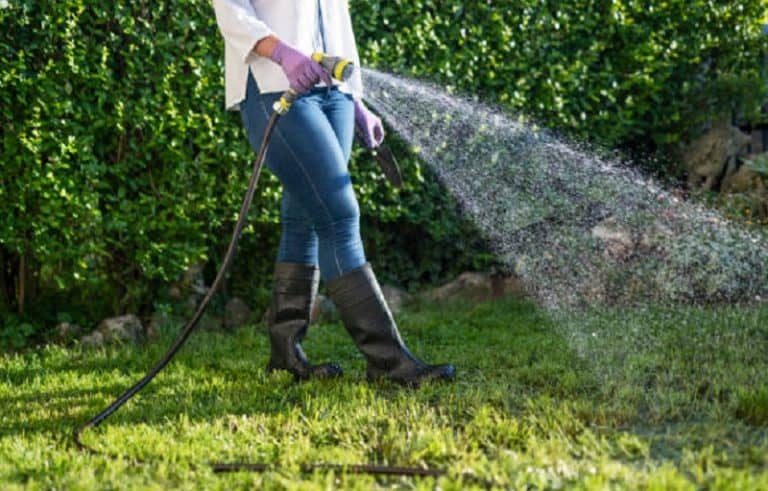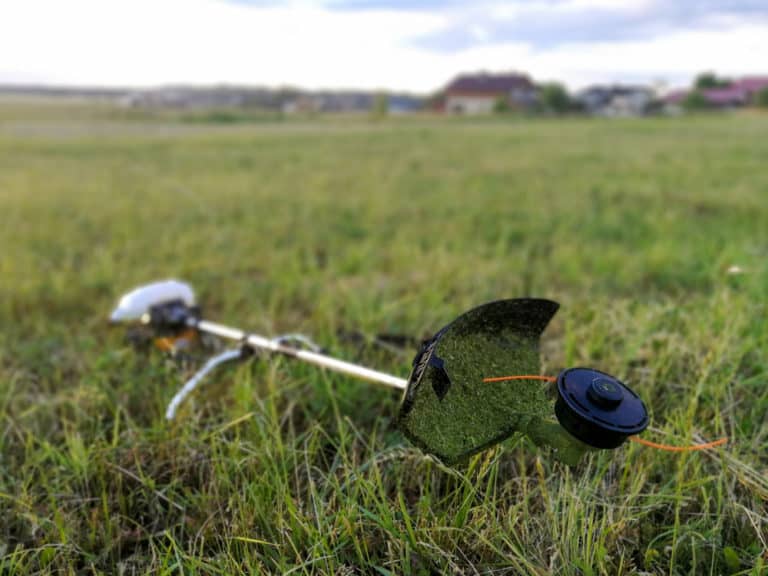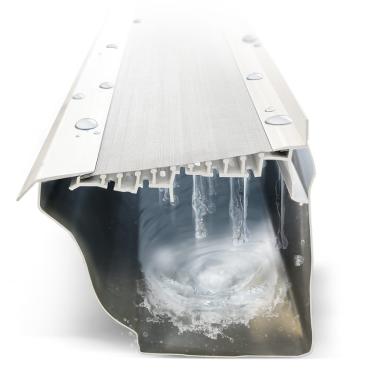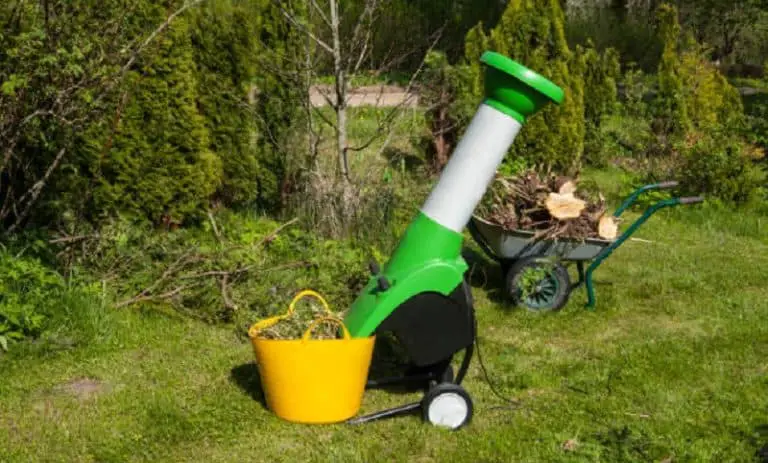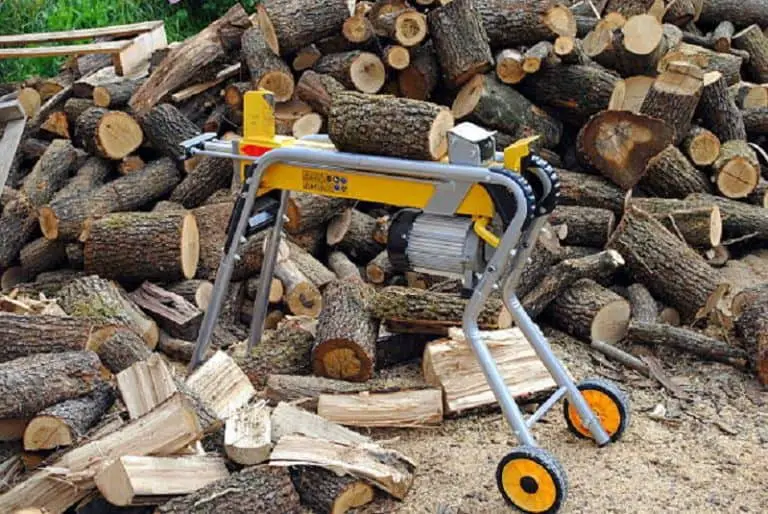Best Insecticides for Your Vegetable Garden
Cultivating and partaking in the fruits of your own garden promotes a tremendous sense of satisfaction and facilitates an understanding of the labor and tenacity demanded in gardening. Despite this, the pleasure can be undermined by pests that consume the crops, bore into foliage, and could potentially disseminate diseases. Moreover, various fungi infections pose a threat to devastate your entire harvest.
This is where insecticides come in handy. They help keep these insects away and protect your crops from diseases. There are several types of pesticides, and different ways to apply them. The product you choose may depend on the insects on your farm, the crops you grow, and your type of farming (organic or inorganic). To save you all the trouble, we have reviewed some of the best garden insecticides. We have also included some tips that can help you keep your garden healthy, always.
Contents
5 Best Insecticides for a Vegetable Garden
Insect Dust (Best Granular Insecticide)
Key Features
- It features diatomaceous, the naturally occurring remains of diatoms.
- It is a food-grade material that can be applied on the farm, and on pets.
- The insect’s dust bag is 4.4 pounds in weight and can cover at least 1800 square feet.
- If you have problems with dust, always cover your face with a mask.
If you’re looking for a safe insecticide for your vegetable garden, or even in your stores, Insect Dust is an ideal choice. It comes in the form of chalk-like dust that’s filled with insecticide. Once this dust lands on the pests’ skin, it penetrates their exoskeleton and starts dehydrating them.
Why we like it
- It’s a non-toxic insecticide that can be used both indoors and outdoors.
- It can last around the surfaces for months, keeping the pests at bay for a long time.
- Since it’s a mechanical killer, insects can’t develop a resistance to it.
- It’s very effective in controlling slugs, pests, silverfish, cockroaches, snails, silverfish, earwigs, and several other pests.
What we don’t like
- The dust is hard to apply uniformly.
- It may pose a risk to non-targeted soil microorganisms.
Our Verdict
Granular insecticides are safer and easier to use. So if you want to keep away from the bad smells and toxicities of other chemical pesticides, you can consider trying out Insect Dust Diatomaceous Earth.
Bug Buster-O (Best Insecticide Spray)
Key Features
- It’s made from pyrethrin, and it features the PyGanic ingredient that’s known for killing a wide variety of pests.
- It is rated as non-toxic, making it safe for use around pets and other domestic animals.
- You can use it in three ways, either spray it, as a soil drench or combine it with a wetting agent.
Bug Buster-O is an excellent bug spray that’s efficient in killing more than 100 species of insects on your farm. It’s also organic, minimizing any harmful effects that result from using too much inorganic substances on a farm.
Why we like it
- Since you can use 1 to 3 gallons of this bug spray when mixed with water for 1000 square feet, it offers a high value for money. Each gallon of water should use 1 to 1.4 fl. Oz (fluid ounce) of the product.
- It starts acting on the insects within a few days.
- It’s made from pyrethrin which is highly biodegradable, and not harmful to underground water.
- OMRI certified for organic production.
What we don’t like
- Some users complained that it’s not very effective with thrips and aphids.
Our Verdict
Organic production is gaining popularity for it has less harmful effects to the soils and your plants. This natural bug spray is ideal for controlling pests on the foliage, as well as on the roots. It also features PyGanic which is known for killing a wide range of pests.
Neem Oil Concentrate Insecticide
Key Features
- It’s an organic insecticide made from the Neem tree.
- It contains 70% of Neem extract, and 30% of other additives to make it more efficient.
- This package is one pint which can produce 16 gallons of the spray.
- It can also be used as a soil drench.
Neem Oil is an organic pesticide extracted from Neem Tree. This oil contains a component known as Azadiratchin, which is an insect repellant. It also kills them and prevents them from completing their growth stages. It’s one of the best insecticides for roses since it protects them from black spots.
Why we like it
- It’s effective in controlling several species of pests and crop diseases.
- It has a high concentration of Azadiratchin. You don’t need to use a lot of it per gallon of water.
- It is approved for organic gardening, which has a wide range of benefits when compared to inorganic farming.
What we don’t like
- It features a strong and less appealing odour.
- It can cause leaf burns.
Our Verdict
It is an ideal pesticide for vegetables and a variety of ornamental plants. Since it’s a naturally occurring pesticide, it is safer, cheaper, and more productive. Since it may burn some plants, spray it at the appropriate time, mostly in the morning and in the evening.
Spectracide Weed & Grass Killer Concentrate
Key Features
- It kills insects, weeds and grass.
- It’s rainproof. If it rains a few minutes after you spray the insecticide, it will not wash away.
- It’s applied through spraying.
- The manufacturer also offers a money-back guarantee if the product doesn’t achieve the desired results.
- It is an inorganic product.
Spectracide is the ultimate lawn insecticide. It helps protect your lawn from pests, diseases, and weeds. It is handy in spot treatment in controlled spaces within your garden.
Why we like it
- It acts almost immediately after application.
- It kills both the foliage and the roots of the weeds and grass.
- It comes in a ready-to-spray bottle. All you have to do is connect it to the water source and start spraying.
- It contains Myclobutanil which protects the plants against diseases.
- It also has nitrogen, phosphorus, and potassium, which allow it to nourish the soil.
What we don’t like
- It’s a highly toxic chemical which poses a threat to your kids and pets.
- There are cases where it doesn’t effectively kill the roots. As a result, some weeds may sprout after some time.
- Myclobutanil may not be very useful in well-established fungal diseases. However, you can still use it as a preventive measure.
Our Verdict
The reason why Spectracide is excellent for lawns is because of the toxic elements. People who practice organic gardening may not find it useful. It’s effective at killing several types of pests, weeds, and grass.
Bonide (BND963)
Key Features
- It is used as a soil drench, by applying it at the base of the plants.
- This bag is 6 pounds in weight and can cover at least 7500 square feet of land.
- It contains Imidacloprid and Tebuconazole, which help roses fight fungal diseases like black spot.
If you’re looking for an insecticide that’s designed with roses in mind, you will love Bonide (BND963). It protects rose flowers and other ornamental plants from pests and diseases.
Why we like it
- It is both a pesticide and a fungicide.
- It kills insects instantly and can last on the ground for several weeks.
- It is active both on the ground and underground.
- It is safe for kids and pets.
What we don’t like
- You have to apply using a spreader, and that’s an additional cost.
- It has some elements that are harmful to aquatic organisms.
- Imidacloprid is moderately toxic and could be harmful to birds and bees.
Our Verdict
Don’t let insects and fungal diseases ravage your rose bushes. You’ll start seeing good results a few days after application, but after about six weeks, you may need to apply it again. Even though the spreader comes at an extra cost, it helps apply it evenly, saving you time and money. Also, excessive Tebuconazole could be poisonous to your plants, so it’s a good thing that you get to control the amounts you’re applying. You can still use the spreader for spreading other chemicals.
Best Insecticide for Vegetable Gardens Buyers Guide
Insecticides, herbicides, and herbicides are often used interchangeably, but they all have slightly different definitions.
- Insecticides – Insecticides are a combination of chemicals, either organic or inorganic, that are specifically designed to kill insects. They can be general whereby they kill all insects, or system insects that kill specific types of insects.
- Pesticides – These products act as repellents and killers of insects. They also help prevent various fungal diseases in plants.
- Herbicides – These products get rid of weeds.
- The ideal pest control involves a combination of the three of them. Below are some safety tips to observe if you want to maintain a healthy garden.
- Always remove the infected plants – Most of the insects may cause some diseases to your plants. Before you begin working, it’s essential to remove those affected to prevent the diseases as well as the insects from spreading to the other crops.
- Practice organic farming – This involves using compost manure, using organic fertilizers, and avoiding most of the commercial inorganic products. These practices prevent the spread of insects.
- Practice Crop Rotation – Some crops are more susceptible to a type of insects than others. To avoid the spread, plant different crops every season.
- When it’s possible, use raised garden beds – Raised gardens help you grow vegetables and ornamental crops on controlled yards. Since they are above the ground, you will be protecting your plants from insects and weeds. You can also create small amounts of compost soil, or even purchase some, and use them on the raised beds.
- Clean the debris on your farm – After weeding, don’t leave the dead plants lying around the farm. As much as they become humus and benefit your plants, they can still facilitate the breeding of insects. You can include them in a compost heap to create manure instead.
- Use garden mulches – Some mulch like cedar has a strong repellent smell that can prevent the spread of insects. Others also prevent the growth of weeds.
- Maintain overall cleanliness – After working on your farm, clean your tools, your clothes, and your hands. These practices prevent the transfer of insects and fungi from one section of the farm to another.
- Always wear protective gear when working on your farm – Some of these products are in the form of dust that could worsen Asthma. Others have toxic chemicals that may be harmful when ingested. To avoid this, always wear gloves, respiratory masks, glasses, boots, and overalls.
- Always read the manufacturer’s instructions – Don’t use these products before reading the instructions. For instance, ensure that to use the right amounts, and ensure that that specific pesticide is appropriate for the types of insects and types of plants on your farm.
- Use Natural Pest Control Methods – Nematodes are good examples. These are worms that can kill harmful insects in the soil without harming essential organisms like earthworms. You can also use Bacillus thuringiensis for pest control. As mentioned earlier, there are DIY insecticides that you can create using soap, vegetable oil, garlic, pepper, and tomatoes leaves.
Frequently Asked Questions (FAQs)
1. Should I use Pesticides in My Garden?
Pesticides help keep away harmful insects on our gardens. Some of them have chemicals that may kill essential insects like bees. Some hazardous chemicals like Imidacloprid may also leach to the underground water. These pesticides contain small amounts of these harmful chemicals so you should follow the instructions of how much to apply when to apply, and how often you should use them.
2. What can I spray on My Garden for Bugs?
For starters, look for bug sprays made of naturally occurring pesticides like Neem Oil. They are effective and safer. Other items known to keep bugs at bay include detergent, alcohol, pepper spray, and garlic.
3. When should I spray My Garden for Insects?
Insects are more active early in the morning and in the evening. Spraying the pesticides during this time will achieve better results. If the insecticide you choose has some toxic substances, avoid applying it when you’re about to harvest. You can also use it on a cloudy day, but not when it’s about to rain, aim for moderate temperatures. The soil should also be relatively dry.
Final Thoughts
The ideal pesticide for vegetables and ornamental crops should at least be non-toxic, effective, and offer value for money. Insect Dust is all of those things. Even though inorganic insecticides may be more effective occasionally, we believe this granular can outdo them in terms of how long it lasts, and how effective it is in eradicating pests.
It is known to last on the soil for months. Also, insects could develop a resistance to some chemical compounds, but this product, being a mechanical killer, will always be effective. They don’t have to ingest it. By rubbing their exoskeletons on it, they will be dead in a few days. The application process is also very straightforward. And that’s not all. You can apply it on your pets because it’s capable of killing fleas that reside in their fur.
